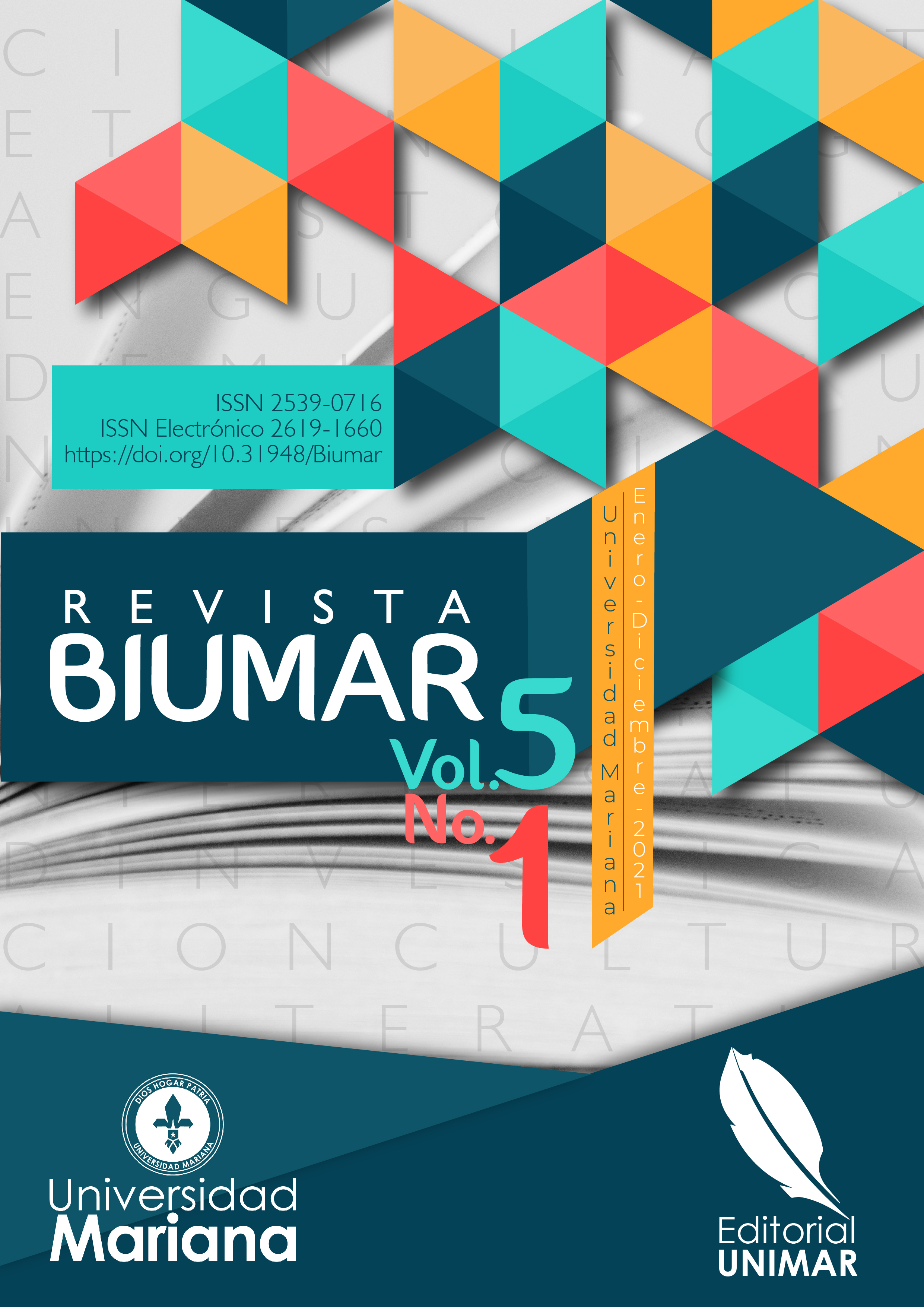Systematization of a significant experience of professional practice in intervention with an undocumented immigrant family residing in the United States
DOI:
https://doi.org/10.31948/BIUMAR5-1-art3Keywords:
Significant experience, professional practice, intervention, immigrant family, undocumented, residingAbstract
The present process of systematization of a significant experience of professional practice in the intervention with an undocumented immigrant family residing in the United States was carried out under the parameters of the qualitative paradigm and with an interpretive approach, for which it was important to implement autobiography as a collection technique of information, applied to two professionals: a social worker and a priest, who developed their professional intervention with an immigrant family group from El Salvador and resident in the United States. Through this experience, it was possible to position the role played by these areas of knowledge in social problems related to the migratory phenomenon. Likewise, it allowed taking experiences for future situations, where the relevance in the intervention is guaranteed, based on scientific criteria that make it possible to open spaces for articulation between professional practice and institutional management and, in this way, optimize the results in processes of this nature.
Author Biographies
Nora Fátima Guerrero Ibarra
Trabajadora Social.
Carlos Andrés Martínez Marriaga
Sacerdote.
Kelly Yineth Pérez Enríquez
Trabajadora Social.
References
Capano, A. y Ubach, A. (2013). Estilos parentales, parentalidad positiva y formación de padres. Ciencias Psicológicas, 7(1), 83-95. https://doi.org/10.22235/cp.v7i1.41
Estrada. (2011). Ciclo vital de la familiar. Editorial Grijalbo.
Gurdián-Fernández, A. (2007). El paradigma cualitativo en la investigación socio-educativa. Coordinación Educativa y Cultural Centroamericana (CECC) Agencia Española de Cooperación Internacional (AECI).
Martínez Rodríguez, J. (2011). Métodos de investigación cualitativa. Silogismo. Más que conceptos, (8), 9-51.
Minsalud. (s.f.). Orientaciones para la conformación y fortalecimiento de grupos de apoyo, en el marco de la emergencia sanitaria por la pandemia del COVID-19. https://www.minsalud.gov.co/sites/rid/Lists/BibliotecaDigital/RIDE/VS/PP/orientaciones-grupo-apoyo-pandemia-covid19.pdf
Modelo de Desarrollo Moderna Económico de Navarra. (s.f.). Escuelas de familia moderna. https://www.educacion.navarra.es/documents/27590/51352/COOPERACION.pdf/3426edf9-83f0-4cea-acbe-5a39716657ca
Munné, F. (1971). El problema del tiempo libre y las sociedades locales. Revista del Instituto de Ciencias Sociales, (17), 117-136.
Proyecto Personal de Vida. (s.f.). ¿Qué es un proyecto personal de vida?https://sites.google.com/site/hautatzenppv/que-es
Torralba, F. (2012). Inteligencia Espiritual en los niños (6.a ed.). Plataforma Editorial.
How to Cite
Downloads
Downloads
Published
Issue
Section
License

This work is licensed under a Creative Commons Attribution 4.0 International License.
Revista Biumar es publicada por la Editorial UNIMAR de la Universidad Mariana bajo los términos de la licencia Creative Commons Reconocimiento 4.0 Internacional (CC BY 4.0)




